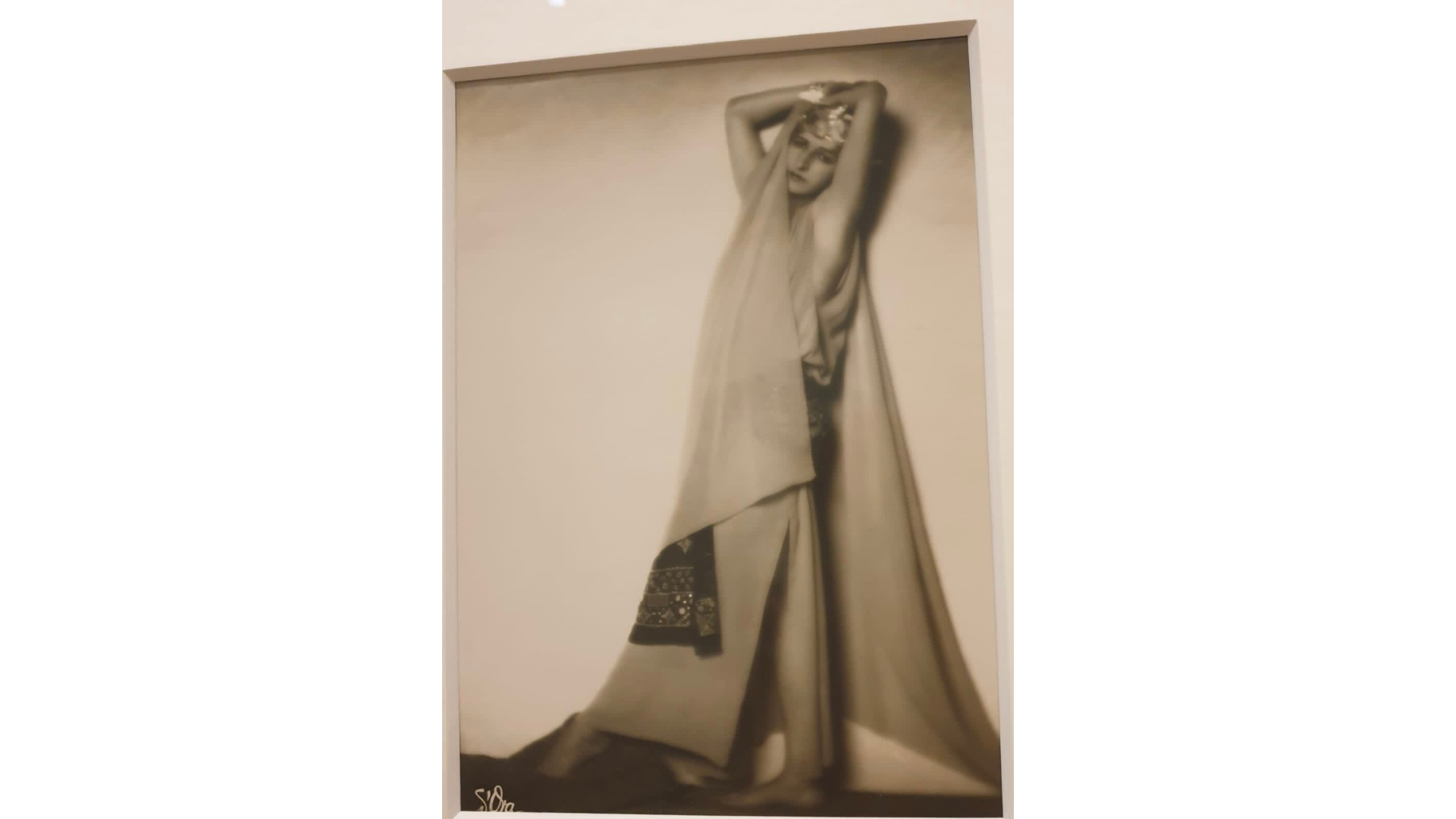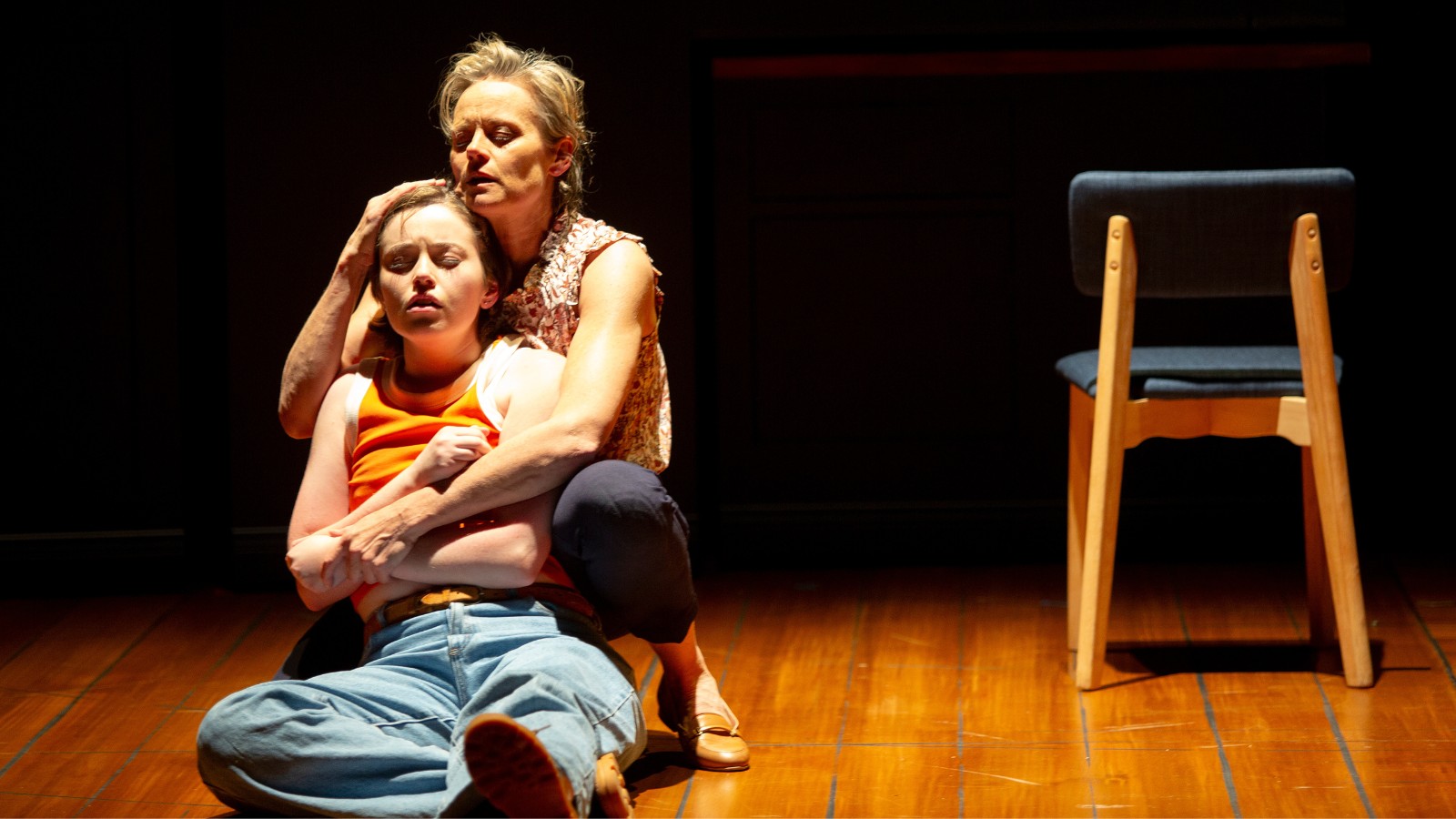Hot Desk Extract: Leila Lois
As part of the Wheeler Centre’s Hot Desk Fellowship programme, Leila Lois explored the life work of Leyla Bedirkhan (1903–1983), a Kurdish princess who danced for Ballet Russes.

Leila created a series of poems based on archival evidence about Leyla and imagination/resonances from her own life. Leyla pushed the boundaries of audiences and was featured in many newspapers, but still maintained a beautiful mysteriousness about herself and her ‘dances and dreams of the East’.
Belkis
At La Scala (in Milan) on 23 January 1932, Leyla danced the role of Belkis in Ottorino Respighi’s ballet “Belkis, Regina di Saba” (Belkis, Queen of Sheba), a world premiere with the choreography of Leonide Massine.
She has a magnetism that draws you in–
into her delicate ten thousand pound arms.
You’ve seen nothing of the dying swan, or Giselle’s port de bras
until you’ve seen Leyla, rising from a bath.
Once, in my dorm at university, he said:
you have a force field around you,
and I imagined a gold halo
around my head, as he tried to kiss me.
It’s not that I didn’t want to;
it’s just that, sometimes,
desire feels so proximate to dread.
And when he left, I think I took a bath,
so I could soak in my dreams; the orchestra swell and chime,
sitars, glockenspiel, and tambourine,
the crushed velvet curtains draped like poured wine
over the Sheban queen, on a ruby studded divan
of green malachite, her gardens hanging with steam.

Dîlan
Dîlan (Danse Kurde), a Kurdish word meaning ‘dance’, from the stem of the word ‘dîl’, meaning heart, was part of Leyla’s repertoire for her entire dancing career.
My heart was in the dance before
my body was–Dîl, meaning: heart.
As a girl I had a heart-shaped face.
I have a heart tattooed on my left side,
an outline your fingers trace.
Sometimes you fill my body with love
like a glasshouse fills with dawn light,
& my arms are vines,
reaching for the sun’s embrace.
There were many flowers
(Blackout poem, words taken from The New York Times article, March 4 1931)
Leila princess of Kurdistan her
dances
belong to the Orient
flair
desire
gentle breeding are valuable
powers
“Rythme Rituel”
the jingling of wrist and ankle bells.
the dancer’s freedom
there were many flowers.

Princess Dancer Reflects
Now I am a lake. A woman bends over me,
Searching my reaches for what she really is.
~ from Mirror, by Sylvia Plath
‘She has a far-away gaze’, they say.
At times I am strange even
to myself– so disparate,
my arms, are two smoke tributaries,
curling out from the source.
I picture scattering my ashes
as a coming together,
as rivers course
into the Marmara sea,
flooding the horizon.
For all my years, I have danced
over continents
like a gypsy bracken, latticed with memory and missing.
Nostalgia is a grandfather clock
ticking over losses, swinging the pendulum
of guilt and survival
against a wooden ribcage;
a heavy toll.
The piano creaks, dampers breathing,
thump-thump goes my heart,
each note drenched in abandon as
across the ballroom,
past the gilded mirrors,
in satin shoes,
I dart.
Boudji-Pacha
For Leyla’s dog, after Sylvia Plath’s ‘You’.
You—
most excitable when the doorbell rings,
mon petit chou, mon coeur—
pocket pasha, little liege—
The joy pours out of me like a mountain spring.
You, tangle around my ankles as I dance,
giggling into the evening,
bubbling with life like gooseberry wine,
cackling and rolling over the silk carpet,
your black tongue unraveling like licorice.
You wiggle under the bedcovers with the setting sun,
with me in those dark unpartnered hours
where there are no lights nor orchestra,
you, more precious to me
than anything, than anyone.
Photograph of Leyla taken in the 1930s. Image credit: Madame D’Ora.
Related Posts

Read
Read an excerpt from The Almighty Sometimes
30 Apr 2024

Read
What's on in May: Resident Organisation Round Up
29 Apr 2024

Read
Anne-Marie Te Whiu Receives The Next Chapter Alumni Poetry Fellowship
2 Apr 2024

Read
What's on in April: Resident Organisation Round Up
28 Mar 2024

Read
Blak & Bright First Nations Literary Festival returns in 2024
7 Mar 2024

Read
What's on in March: Resident Organisation Round Up
29 Feb 2024
Share this content